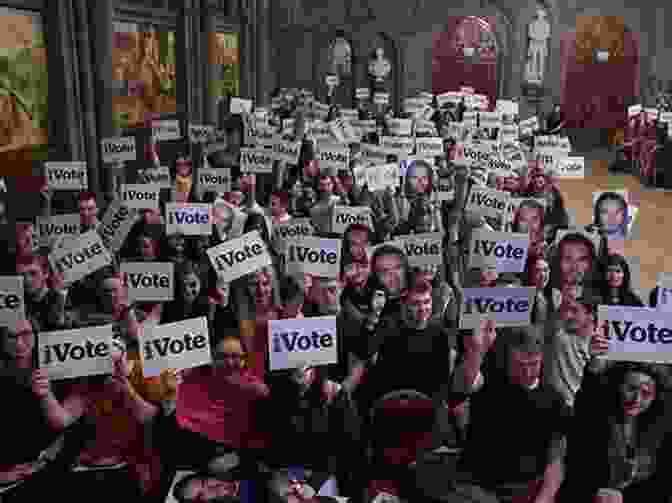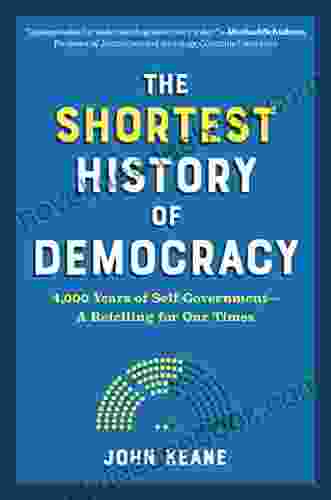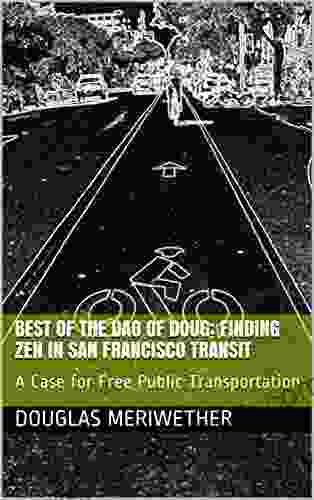The Shortest History of Democracy


What is democracy?
Democracy is a system of government in which power is vested in the people, who exercise it through elected representatives. Democracy is often contrasted with other forms of government, such as monarchy, in which power is vested in a single individual, or oligarchy, in which power is vested in a small group of people.
4.7 out of 5
| Language | : | English |
| File size | : | 823 KB |
| Text-to-Speech | : | Enabled |
| Screen Reader | : | Supported |
| Print length | : | 318 pages |
| Lending | : | Enabled |
| X-Ray for textbooks | : | Enabled |
Democracy has a long and complex history, but its origins can be traced back to ancient Greece. The word "democracy" comes from the Greek words "demos," meaning "people," and "kratos," meaning "power." The first democracies were established in the city-states of ancient Greece, such as Athens and Sparta.
In ancient Greece, democracy was a direct democracy, meaning that all citizens were able to participate in the government. Citizens would meet in a public assembly to discuss and vote on laws and policies. Direct democracy was also practiced in some of the early American colonies.
However, as societies became larger and more complex, it became impractical for all citizens to participate directly in the government. This led to the development of representative democracy, in which citizens elect representatives to make decisions on their behalf.
Representative democracy is the most common form of democracy today. In a representative democracy, citizens elect representatives to serve in a legislature. The legislature is responsible for making laws and policies. The executive branch of government is responsible for enforcing the laws and policies made by the legislature.
Democracy is an essential part of a free and just society. Democracy allows citizens to have a voice in the government and to hold their elected officials accountable. Democracy also helps to protect individual rights and freedoms.
The history of democracy
The history of democracy is a long and complex one, dating back to the earliest days of human civilization. The concept of democracy first emerged in ancient Greece, where the city-state of Athens developed a system of government in which all male citizens over the age of 18 could participate in the assembly and vote on laws.
This system of government was not without its flaws, however. Only a small minority of the population was eligible to vote, and the assembly was often dominated by wealthy landowners. Nevertheless, the Athenian democracy was a major step forward in the development of democratic government.
The Roman Republic also developed a system of democracy, although it was not as democratic as the Athenian system. The Roman Republic was ruled by a senate, which was elected by the people. However, the senate was dominated by wealthy patricians, and the common people had little say in the government.
The Roman Republic eventually collapsed, and was replaced by the Roman Empire. The Roman Empire was an autocratic state, in which the emperor had absolute power. Democracy was suppressed during the Roman Empire, and it would not be revived until the Middle Ages.
In the Middle Ages, the concept of democracy began to revive in the city-states of Italy. The Italian city-states developed a system of government known as the commune, which was ruled by a council elected by the people. The commune system was a major step forward in the development of democracy, and it would eventually spread to other parts of Europe.
In the 17th and 18th centuries, the concept of democracy spread to the American colonies. The American colonists were inspired by the ideals of the Enlightenment, and they believed that all people were entitled to certain natural rights, such as the right to life, liberty, and property.
The American colonists revolted against British rule in 1776, and they established the United States of America. The United States was founded on the principles of democracy, and it has been a democratic republic ever since.
The United States has been a model for democracy around the world. In the 19th and 20th centuries, many other countries adopted democratic forms of government. Today, democracy is the most common form of government in the world.
The challenges of democracy
Democracy is not without its challenges. One of the biggest challenges is the problem of majority rule. In a democracy, the majority of the people have the power to make decisions that affect the minority. This can lead to the tyranny of the majority, in which the rights of the minority are violated.
Another challenge of democracy is the problem of special interests. Special interests are groups that seek to influence the government in order to benefit themselves. Special interests can use their money and power to lobby politicians and to influence public opinion. This can lead to corruption and to the neglect of the interests of the people.
The third challenge of democracy is the problem of apathy. Apathy is the lack of interest in politics. Apathy can lead to low voter turnout and to the election of unqualified candidates. This can weaken democracy and make it more difficult to address the challenges facing society.
Democracy is a complex and challenging system of government. However, it is also the best system of government that we have. Democracy allows people to have a voice in the government and to hold their elected officials accountable. Democracy also helps to protect individual rights and freedoms.
The future of democracy
The future of democracy is uncertain. The world is facing a number of challenges, such as climate change, poverty, and terrorism. These challenges could lead to the erosion of democracy and to the rise of authoritarianism.
However, there are also many reasons to be hopeful about the future of democracy. The world is becoming more interconnected, and people are becoming more aware of their rights. This could lead to a new era of democracy, in which people are more engaged in politics and more committed to making democracy work.
The future of democracy depends on all of us. We must all work to protect democracy and to make it more inclusive and responsive to the needs of the people. We must also work to address the challenges facing democracy, such as climate change, poverty, and terrorism.
If we all work together, we can build a better future for democracy.
Democracy is a system of government in which power is vested in the people. Democracy has a long and complex history, but it is also a relatively new form of government. Democracy is not without its challenges, but it is the best system of government that we have. The future of democracy depends on all of us. We must all work to protect democracy and to make it more inclusive and responsive to the needs of the people. We must also work to address the challenges facing democracy, such as climate change, poverty, and terrorism.
If we all work together, we can build a better future for democracy.
4.7 out of 5
| Language | : | English |
| File size | : | 823 KB |
| Text-to-Speech | : | Enabled |
| Screen Reader | : | Supported |
| Print length | : | 318 pages |
| Lending | : | Enabled |
| X-Ray for textbooks | : | Enabled |
Do you want to contribute by writing guest posts on this blog?
Please contact us and send us a resume of previous articles that you have written.
 Book
Book Novel
Novel Text
Text Paperback
Paperback E-book
E-book Newspaper
Newspaper Sentence
Sentence Bookmark
Bookmark Glossary
Glossary Bibliography
Bibliography Foreword
Foreword Footnote
Footnote Manuscript
Manuscript Bestseller
Bestseller Classics
Classics Narrative
Narrative Biography
Biography Memoir
Memoir Dictionary
Dictionary Thesaurus
Thesaurus Narrator
Narrator Character
Character Librarian
Librarian Stacks
Stacks Archives
Archives Periodicals
Periodicals Research
Research Lending
Lending Reserve
Reserve Academic
Academic Reading Room
Reading Room Rare Books
Rare Books Interlibrary
Interlibrary Study Group
Study Group Dissertation
Dissertation Awards
Awards Reading List
Reading List Book Club
Book Club Theory
Theory Textbooks
Textbooks K C Mills
K C Mills Linda Gregerson
Linda Gregerson Scott Frothingham
Scott Frothingham Tamar Herzig
Tamar Herzig Tech Reviewer
Tech Reviewer Heather Jones
Heather Jones Joric Mclean
Joric Mclean Suzanne Hales
Suzanne Hales Ruth E Braatz
Ruth E Braatz Julie Ken
Julie Ken Susan Purvis
Susan Purvis John Thompson
John Thompson Saru Jayaraman
Saru Jayaraman Kylie Canna Renaro
Kylie Canna Renaro Joy Davis
Joy Davis Ed Sealover
Ed Sealover Phillip Y Lipscy
Phillip Y Lipscy Libby Rockaway
Libby Rockaway Dennis Lock
Dennis Lock John Mayo
John Mayo
Light bulbAdvertise smarter! Our strategic ad space ensures maximum exposure. Reserve your spot today!
 Connor MitchellFollow ·6.8k
Connor MitchellFollow ·6.8k Jaylen MitchellFollow ·13.1k
Jaylen MitchellFollow ·13.1k Anton ChekhovFollow ·11.5k
Anton ChekhovFollow ·11.5k Donovan CarterFollow ·13.7k
Donovan CarterFollow ·13.7k Rubén DaríoFollow ·2.9k
Rubén DaríoFollow ·2.9k Brian BellFollow ·19.1k
Brian BellFollow ·19.1k Reginald CoxFollow ·8.8k
Reginald CoxFollow ·8.8k Theodore MitchellFollow ·7.8k
Theodore MitchellFollow ·7.8k

 Bryce Foster
Bryce FosterPerforming Asian American Women On Screen And Scene
The representation of Asian American women...

 Frank Mitchell
Frank MitchellGirl Can Draw: A Spirited and Inspiring Play by Joe...
Prologue In the realm of...

 Marc Foster
Marc FosterThe Epic Story of Race and the American Media: A Journey...
From the Shadows of Slavery to the Dawn of...

 Demetrius Carter
Demetrius CarterThe Ultimate Guide to Hiking West Virginia: Discover the...
West Virginia, often referred to as...

 Isaiah Price
Isaiah PriceThe Ten Step Guide on How to Become Famous: Unleash Your...
In the captivating world of entertainment...
4.7 out of 5
| Language | : | English |
| File size | : | 823 KB |
| Text-to-Speech | : | Enabled |
| Screen Reader | : | Supported |
| Print length | : | 318 pages |
| Lending | : | Enabled |
| X-Ray for textbooks | : | Enabled |











